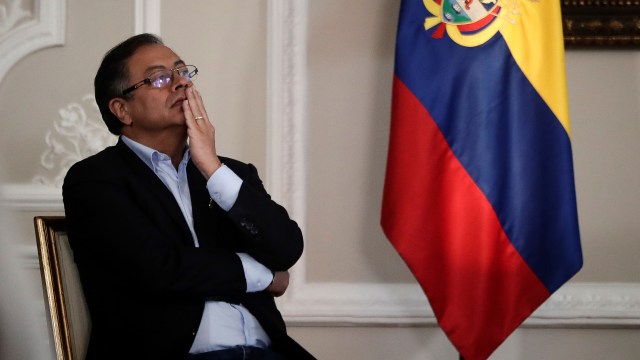Today at WPR, we’re covering why Myanmar’s military junta is losing control of the country and how Austria’s far-right foreshadows populist movements across Europe.
Get the Daily Review sent straight to your inbox every weekday.
First, though, here’s our take on today’s top stories:
U.S.-India: As mentioned, President Joe Biden will host Modi for a state visit beginning tomorrow. The decision to do so has raised some controversy in the U.S., given that Biden has gone all-in on a pro-democracy framework in his foreign policy, while Modi has presided over democratic backsliding in India. (New York Times)
Our Take: Modi’s visit is a sign of just how much progress the two sides have made on broadening and deepening ties in the past two decades, and even in the past two years under Biden. That will be most visible in the commercial agreements, including big-ticket defense deals, expected to be announced during the visit.
Of course, tensions remain in the alliance, especially over India’s ties to Russia. But Washington and New Delhi share a common interest in countering China, and the two sides have clearly decided to not let disagreements on other issues interfere with that partnership.
*****
EU-China trade: The European Commission has unveiled a new strategy document for trade that, though it never mentions China by name, is aimed at curbing Europe’s economic dependence on Beijing. (New York Times)
Our Take: The commission has made it clear it wants a tougher EU-wide approach to trade with China, to avoid repeating the same mistakes Europe made with Russia. But some member states are loath to give up the benefits that trade with China brings, while others worry about following the U.S. lead. The new document got notably mixed reviews among analysts, who saw it as watered down and weak. Coming the same day that German Chancellor Olaf Scholz held what was essentially a business-as-usual meeting with Chinese Premier Li Qiang, it highlights Europe’s difficulties in forging a common stance on China.
More Context from WPR: Sophia Besch and Tara Varma on Europe’s disjointed China policy.
*****
You can read the rest of today’s News Wire, a curated selection of one must-read article from every region, here.

Almost two and half years since the February 2021 coup that toppled the democratically elected civilian government, Myanmar’s military junta is losing control of much of the country.
As Joshua Kurlantzick reports, the junta had already lost large swathes of territory to ethnic militias and People’s Defense Militias. Now, it faces threats even in the biggest cities.

Myanmar’s Junta Is Losing the Civil War
Over two years since the coup that toppled Myanmar’s democracy, the ruling military junta is losing control of much of the country. Read more.
The rise of a specific brand of far-right populism in Austria in the 1990s turned out to be a harbinger of things to come across Europe. Columnist Alexander Clarkson argues that it’s happening again: New trends in far-right populism in Austria will almost certainly become visible in other European societies.
For Europe, Austria’s Far Right Is a Harbinger of Things to Come
Austria’s far-right Freedom Party has for decades presaged the political realignments taking place across Europe. Read more.


Thousands of people marched in Colombia on Tuesday to protest President Gustavo Petro’s government and its agenda.
Petro, the country’s first leftist president, entered office last year with an ambitious domestic agenda that has since stalled, as Joshua Collins reports, while at the same time he’s faced a series of scandals, as Frida Ghitis writes.

Petro’s Domestic Agenda Has Hit a Wall in Colombia
June 2, 2023 | Colombian President Gustavo Petro took office last year with an ambitious reform agenda, but he may have run out of political capital. Read more.
That’s all for today’s Daily Review. Be on the lookout for a briefing on how Sudan’s civilian actors are repeating the same mistakes that derailed the post-Bashir political transition.
Have a great day,
Jakob Cansler
More from WPR
- Alana Moceri on what Spain’s upcoming elections could mean for Ukraine.
- Charli Carpenter on why holding Russia accountable for destroying a dam in Ukraine won’t be easy.
- James Bosworth’s on Guatemala’s upcoming presidential election.
- Edward Carpenter & Charli Carpenter on U.N. peacekeepers’ failure to protect civilians in South Sudan.
Jakob Cansler is WPR’s assistant editor and the author of the Cansler Culture newsletter.

